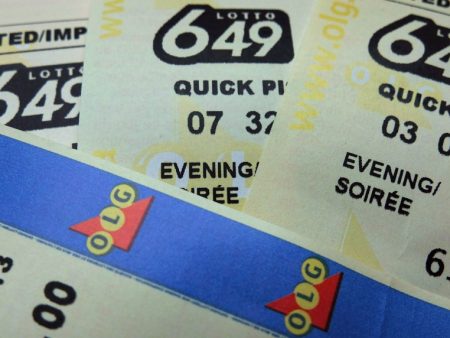From the establishment of Loto-Québec in 1970 to the advent of regulated online platforms, lottery laws in Québec have been reflecting the province’s unwavering commitment to balancing entertainment with responsible gambling and market vision.
As a pioneer in adopting single-event sports betting and innovative promotional strategies, the province has consistently demonstrated its adaptability. Québec has consistently adjusted its regulations throughout history to meet changing societal and technological needs, setting a progressive example for other jurisdictions.
Exploring the historical trajectory of these laws reveals how they have influenced economic growth, ensured player protection, and cemented Loto-Québec’s role as a cornerstone of the province’s gaming landscape.
Beginnings of Gambling Regulation in Québec
The first lottery laws in Québec date back to the early 20th century, when gambling was largely prohibited under Canada’s federal Criminal Code. This code, which aimed to curtail gambling-related crime, significantly influenced Québec’s early stance on gambling, reflecting societal values at the time.
In the 1960s, Québec began reevaluating its stance on gambling as attitudes shifted and provinces recognized its potential as a controlled source of revenue.
This shift coincided with a growing public interest in lottery-style games. Informal, community-based gambling events were common, but their unregulated nature often left players vulnerable to fraud.
By introducing structured laws, the provincial government sought to protect players and generate funds for public initiatives, laying the groundwork for modern lottery regulations.
The Creation of Loto-Québec: A New Era for Lotteries
In 1969, an amendment to the Criminal Code permitted provinces to manage their own lottery systems. Québec responded swiftly, creating Loto-Québec in 1970.
The first government-operated lottery, Inter Loto, was launched in the same year. Its success was immediate; the revenue supported healthcare, education, and infrastructure projects.
As a Crown corporation, Loto-Québec was tasked with organizing and regulating lottery activities across the province, creating the first structure of lottery laws in Québec. The establishment of the company marked the beginning of a regulated, transparent lottery system that balanced public interest with responsible gaming practices.
Creating Regulation
Several legislative milestones were formative for current lottery laws in Québec. The Act respecting lotteries, publicity contests, and amusement machines provided an early framework for managing gaming activities.
Over time, this legislation expanded to include regulations for electronic gaming, casino operations, and online platforms.
In 2010, Québec became the first Canadian province to launch a government-regulated online gambling platform, Espacejeux. This innovation required updates to existing laws to address digital gaming, ensuring it adhered to provincial standards.
More recently, the legalization of single-event sports betting in 2021 under Bill C-218 brought new dimensions to Québec’s gaming landscape, requiring further legislative adjustments.
How Loto-Québec Became a Crown Corporation
Loto-Québec’s status as a Crown corporation underscores its dual role as a regulator and revenue generator. This model allows the government to control lottery operations while ensuring profits support public programs.
The corporation operates under the Act respecting the Société des loteries du Québec, which outlines its responsibilities and governance structure. This legislation mandates transparency, accountability, and adherence to ethical gaming practices.
Over the years, Loto-Québec has expanded its scope to include video lottery terminals, casinos, and online platforms. The corporation is a monopoly in Québec’s gaming industry.
Responsible Gambling Initiatives Through the Decades
Responsible gambling has always been a priority under lottery laws in Québec. From its inception, Loto-Québec has implemented measures to promote safe gaming practices. Early campaigns focused on public awareness, educating players about the risks of gambling.
Modern initiatives include self-exclusion programs, deposit limits, and partnerships with organizations such as Gambling: Help and Referral. Loto-Québec also funds research into gambling behaviours, using findings to improve player protection strategies.
These actions align with provincial laws emphasizing consumer safety and the ethical operation of gaming activities.
The Legal Age for Gambling in Québec
The legal age for gambling in Québec is 18, consistent with the province’s drinking age. This regulation applies to all forms of gambling, including lottery tickets, casino games, and online platforms. It aims to prevent underage gambling while fostering a responsible gaming culture among adults.
Strict enforcement of this law assures compliance. Retailers and online operators must verify the age of participants before allowing access to gambling activities.
Loto-Québec’s commitment to upholding these standards reflects the importance of maintaining integrity within the gaming industry.
Contemporary Lottery Laws in Québec
Although many Canadian provinces are going through simultaneous changes in gambling regulations, lottery laws in Québec remain relatively solid. They are governed primarily by the Act respecting lotteries, publicity contests, and amusement machines and the Act respecting the Société des loteries du Québec.
These laws regulate activities across physical and digital platforms, ensuring fair play and transparency.
Loto-Québec continues to lead the way in adapting to industry trends. Espacejeux, its online gaming platform, offers a range of games, including poker, lottery draws, and sports betting. Recent updates include improved player protection features and expanded payment options, reflecting the corporation’s dedication to innovation and player satisfaction.
While the current law frames are robust, it’s important to note that they are not static. In the second semester of 2024, for instance, Loto-Québec launched a “2nd Chance” promotion, allowing players to enter non-winning lottery tickets into a draw for a chance to win additional prizes.
This initiative demonstrates the corporation’s efforts to engage players while complying with regulatory requirements, and it also hints at the potential for future innovative promotions under Québec’s evolving lottery laws.
Lottery Promotions and Incentives: Driving Player Engagement
Promotions and incentives play a vital role in the success of lottery laws in Québec. Campaigns such as the “2nd Chance” promotion previously mentioned attract new players and encourage participation among regular customers.
Such initiatives align with provincial laws that mandate transparency and fairness in gaming activities.
Loto-Québec’s promotional strategies extend to online platforms, where players can access exclusive bonuses and personalized offers. These efforts help sustain interest in lotteries while supporting responsible gambling practices.
Québec sets a standard for other jurisdictions by balancing engagement with ethical considerations.
Economic Contributions of Loto-Québec Over Time
The economic impact of Loto-Québec extends far beyond ticket sales.
Since its establishment, the corporation has made significant economic contributions, generating billions of dollars for the provincial economy and funding critical services such as healthcare, education, and infrastructure.
In 2023 alone, Loto-Québec reported revenues exceeding $2.8 billion, a testament to its efficiency and popularity. These funds support government programs and community initiatives, reinforcing the corporation’s role as a driver of social and economic development.
Staying Informed About Legal Updates
Understanding lottery laws in Québec is crucial for anyone participating in gaming activities. Loto-Québec’s website is a comprehensive resource, offering updates on regulations, promotions, and responsible gambling initiatives.
Staying informed ensures compliance with provincial laws while enhancing the gaming experience.
Currently, Canadian provinces are undergoing massive changes in gambling regulations. The story of Québec can tranquillize players and stakeholders, who can look forward to a more secure, fair, and engaging industry.
















